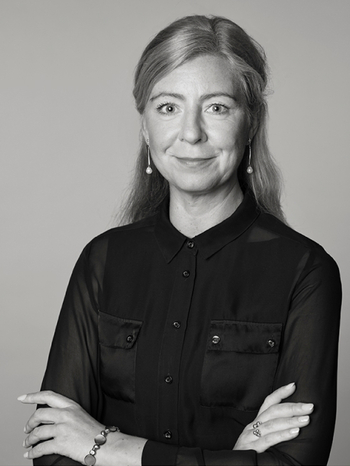Liss Eriksson
Portrait depicting Menzor Siz
Signed Liss Er, Paris and dated 1949-50. Numbered 5/5. Foundry mark Vasuani, cire perdue and Bronze. Bronze, dark patina. Height 42 cm (including stone base 49.5 cm).
Literature
Thomas Millroth, "Liss Eriksson", compare "Siz I", 1948-49, p. 49.
More information
"I Paris kom Liss Eriksson i kontakt med senegaleser. Några satt modell". (Millroth sid. 46).
Artist
Liss Eriksson was born in Stockholm and was the youngest child of the sculptor Christian Eriksson and Ebba Dahlgren. He grew up in his father's studio on Maria Prästgårdsgatan in Södermalm, Stockholm. He initially studied to become an architect at Norrköpings Technical High School in 1938, but quickly aborted his schooling to study at the Royal Institute of Art under the tutorship of Nils Sjögren and Eric Grate.
In the year 1947, Eriksson participated alongside Arne Jones in the Exhibition Young Art at Färg och Form, which sparked interest with the artist group 1947 års män. After this Eriksson travelled to Paris with his wife and artist Britta Reich-Eriksson (born 1918) and studied under Jean Osouf and Henri Laurens, staying in the city until 1951, when he later moved back to Stockholm and took over his father's studio.
Liss Eriksson was early on influenced by the French school, Aristide Maillol and Henri Laurens, but even by the Swiss artist Alberto Giacometti.
Read more




















































